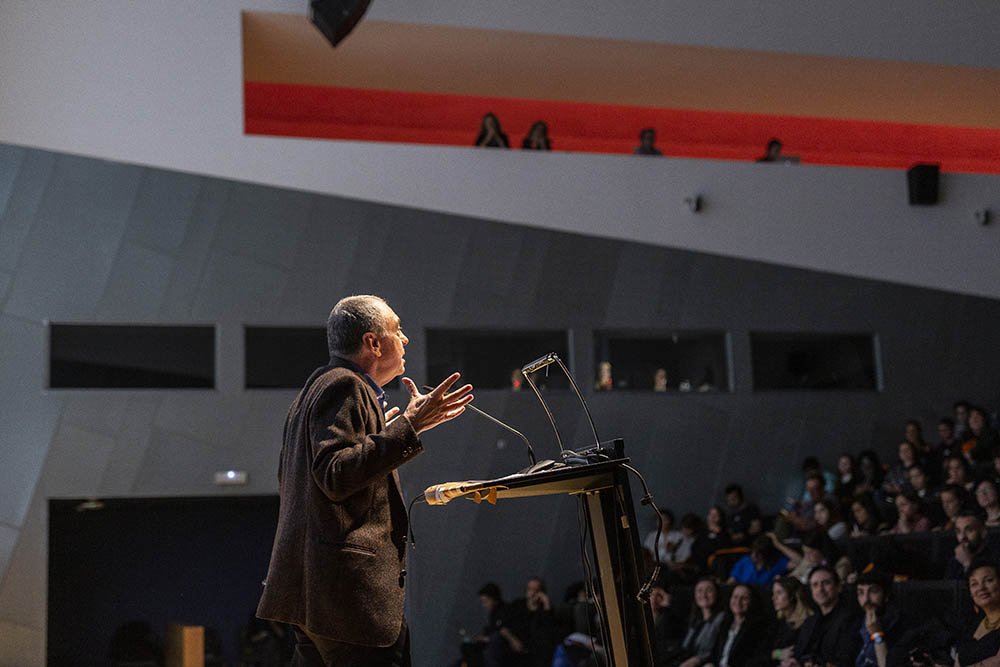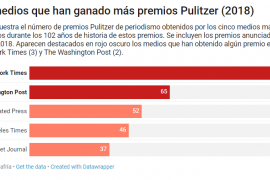[dropcap letter=”G”]
illes Lipovetsky (France, 1944) became a reference essayist when he dared to approach fashion as a social phenomenon. Philosopher and sociologist, Lipovetsky approached a subject despised by every self-respected anti-modern philosopher. In fact, his book L’empire de l’éphémère (1987) begins by stating that “fashion provokes a critical reflex rather than objective study. Fashion is always about the others”. He broke through by approaching fashion -understood as the rapid process of design, production and consumption- as a paradigm of modern capitalism. He was not the first: outstanding thinkers such as Georg Simmel or Walter Benjamin, had already turned their look towards fashion as a symptom and expression of Western modernity.
Does the intelligentsia still not like the question of fashion?
I think so. What has changed since the 1980s is that fashion studies have developed largely. When I wrote L’empire de l’éphémère I suffered a lot to find the information. There were no books. In the Anglo world there are Women Studies and in the Basque Country already good studies were done, but not by philosophers, but by sociologists, anthropologists or historians. Philosophers continue to despise fashion. It seems to them that it is only about conformism and alienation of women.
And feminist thinking, does it deal with fashion?
In a chapter of La troisième femme I treat beauty. When I wrote it in the nineties, it provoked a great debate. Five feminists were asked to react to my book. None of them commented on this issue, because they consider it unworthy of serious studies. It’s a huge mistake, completely!
You are right, it is a fundamental issue. Particularly for women, since the weight of appearance lies on us. It is a political issue related to the construction of female subjectivity.
I totally agree. It is a very symptomatic reaction. In the United States there is for example a book like The Beauty Myth by Naomi Wolf, but in France politics is understood in a very strict way. Fashion is only linked to the objectified woman. It feels almost like contempt. Women consider themselves important for their citizenship, for their work, for caring for their creatures. Okay, but when it comes to beauty… horror! They react, scandalized.
But one needs to study the social constitution of beauty in order to know it, to be able to criticize it and change it, if one wishes so, don’t you think?
There are things to criticize, of course, but the relationship with the body is essential. It is an issue that worries me, because the relationship with the body, particularly the female, illustrates a trend that is contrary to the other spheres of society in which women advance, because there is only one rule that legitimizes beauty: thinness. In the past, there was more pluralism. Now the body must be thin.
“We are living a massive cultural revolution, but I am convinced that it will not annihilate the sexual division”
In L’empire de l’éphémère, you stated that “the artificial favours access to reality”. Read from our times, it made me think of transsexual models, because they exemplify the paradigm of the promise of a transformation offered by the advertising of beauty products. The message that marketing directs to non-transsexual women is: if a man can achieve this feminine and glamorous aspect, what couldn’t it do for you.
I do not believe in transsexual models. I think they are a real effect of the progress of this group, but to say that we are in a logic of blurring the division of the sexes seems to me a contradiction. It works in advertising and marketing because it operates as a provocation, a subversion, but anything else. We are living a massive cultural revolution, but I am convinced that it will not annihilate the sexual division. I do not think we are tending to a unisex or transsexual society. That is only in the head of the marketing people. I think it sounds provocative among professionals because they are naive and victims of fashion. Fashion is a small world.
Do you think there is more creativity today in fashion?
Now, especially for women, the most important thing is not fashion but the body. They worry more about their weight or skin than about wearing jeans. They dress more relaxed, with a fun side, there is a distance. In the past they were obsessed with appearance, it was almost vital. Now the appearance is the body itself. Here it stops being fun. It is very serious, the body, the face. Before, women were jealous of others’ clothes. This does not happen anymore, except among some teenagers. Trends are criticized, but I am in favour of that, since it means that clothes are in place. Thus, it does not carry the meaning of life, life is something else.
Too much attention is paid to the women’s body, particularly in relation to aging, don’t you think?
I agree completely. The cult of thinness is terrible. There are many women and brands that fight this, like Dove, but they have little success.
I think the success to change the model is feeble, but many women identify themselves with the body of Dove and feel better.
This is desirable. In fact, a certain roundness is not ugly, it does not shock me. The canonical beauty of fashion looks poor.
It is because that kind of beauty does not try to be liked by men, but to accommodate a standard of subjectivity obedient, disciplined and consumer. It is another model, a model of subjectivity and a strategy of soft power.
There are many aesthetic operations and Botox. Women are right to speak of the tyranny of beauty.
“We need a new education that equips young people with tools and teaches them to be more than consumers. Art training should be central, as well as strategies for competitiveness “
I tend to refuse the term “tyranny” because I learned -precisely from your books and in Foucault’s notion of productive power- that women are seduced to adopt this model. There is a lot of pressure, but the modus operandi is not the logic of force, but the logic of seduction, do not you think?
It depends on the way we study the issue. If we look at it from the sociological point of view, there is a tyranny. If we see it from the political side, we can confront it. At school, preadolescents are very pressured. We need a new education that equips young people with tools and teaches them to be more than consumers. Art education should be central, as well as strategies for competitiveness. The objective is quality, not quantity. Democracy is equivalent to the possibility of realizing the human ideal. Encouraging creativity and self-expression is essential to avoid the heaviness of repetitive work. Do good, love the beautiful and create. As for tyranny, feminists complain, but globally it is less strong than before. For instance, think of the texts that men wrote about old women were terrible! They were treated as witches, they were very violent.

Has it really changed so much, today? I will soon be an old lady…
But you are still beautiful!
Thank you, but isn’t it the trap, precisely? Women are socially acceptable while we are beautiful. However, accepting the authority of our voice, well, this actually costs more -regardless of whether one is beautiful or not. If you are considered beautiful, it seems shocking. Many men are still afraid of educated women. Beauty acts as a protection: “you are still beautiful”. The “witch” arises when the beauty of a woman vanishes and what stands out most then is her knowledge, her wisdom, don’t you think?
When I give lectures in Brazil, women love what I say, but they tell me that men think that women at forty are old. However, I know women of a certain age who find partners of the same age. For an intelligent man, on an erotic level, I believe that a woman of a certain age may be found erotic. They are interesting. The body is fine, but it is not that important. On eroticism, Proust says that a certain imagination is necessary. True that many men are conformists. Even considering the evolution of today, the seduction tools of men and women are not the same. For example, power and money are attractive factors for women. Leading political men attract women. Women leaders do not attract men at all. It is rather the opposite, and this does not seem to change. That’s why I do not believe in the transgender combination in the cultural sense. After all that has changed, this has not changed. Rich and old men look for young women. The revolution is not total, there are great remainders, lagged behind.
More than a revolution, is it then a small vanguard? Is it going to change our erotic look?
I do not think it’s a vanguard, I think it’s a potential reality, but that will remain marginal. Listen, I pay close attention to anthropology. Homo sapiens have been around for 50,000 years during which there always seems to have been a sexual division of labour. I do not see that this dimension will disappear. Being a man and being a woman, it can be said that it is a construction, like the gender studies do state, but it is not a total construction.
Intellectual women tend to be perceived as people who deal with matters that only concern women. Are there currently intellectual women in France who are public figures? Is not there a hierarchy of voice authority?
It’s a good question, but celebrity is not the reference now. The university women who write are many. There are things that do not change, but there are other things that do. In the 50s it was considered that women could not study mathematics. This is over. There are not many engineers, but nobody considers that when they are, they stop being feminine. It is not true.
“The dominant culture among the younger generations is no longer a hierarchy of sexes according to which women are good at listening, raising creatures, being beautiful and desirable. The egalitarian model has defeated the old model, but this does not mean that, suddenly, everything is equal”
Ok, but the question is not about the perception of their femininity, but rather whether female engineers will have the same confidence of the clientele in their work -and the same retribution- as their male colleagues.
There are many differences in start-ups: most are men. That’s the way things are, but the principles of equality nobody refuses them. The great era of machismo has ended, but feminism is not happy. I keep criticizing things that have not changed, but there are things that have. Feminism only sees inequality, as if it were terrible. It is not the machismo on which the glass ceiling rests. It is much more complicated. The macho culture believes that there is a superiority of man over woman, but most men no longer think this. Although it still exists, the dominant culture among the younger generations is no longer a hierarchy of sexes according to which women are good at listening, raising creatures, being beautiful and desirable. The egalitarian model has defeated the old phallocentric macho model, but this does not mean that, suddenly, everything is equal. There are new forms of difference and inequality that are reconstituted. For example, in politics, more and more women are reaching the top and it is not a problem. However, large companies are still in the hands of men and yet, as a rematch, there are a huge number of women entrepreneurs in medium and small companies. Many are governed by the professional model but do not want to destroy the family model. They look for balance.
They also seek to change society in a way that allows them to do everything.
Yes, but men do not seek it. I have friends who have not accepted professional promotions because they do not want to sacrifice family and children, but men do not refuse. Is this machismo? Not quite. We do not live in a macho culture, but neither is it equal. The current feminist model still responds to the idea that men want to restrain women. I think it’s a vision that is not good for women. Men have evolved a lot, not in everything, but the fact is that there is no father in Europe who does not want his daughters to study. It has changed a lot! I did want my two daughters to study. I never thought that they should set themselves limits for being women.
Do not you think that women tend to reject hypercompetitive work models? They want to work, but not to make war.
Yes, women are less competitive. For this reason, they create small businesses. In the big ones it is terrible, it is war. Indeed, it is a male political model: look at men building their identity based on competition, even sexual. Women do not. This does not change.
No, but it could. It is not biologically determined, it is cultural.
Biology is educated, but anatomically we are not the same. This fact has an influence. We should keep in mind that, today, the positive far outweighs the negative. The model of the 50s is utterly surpassed. The idea that women should marry and take care of the home exclusively was a tradition for the most, which is now obsolete. It is totally unthinkable. Girls can do whatever they want. No problem. The revolution is huge! I think women should reflect more on the enormous changes that have taken place, even if not everything is positive. The old model had something comfortable because it was tradition, but nowadays women are expected to be much more reflective and, like men, reinvent themselves permanently. The model is that of the woman who invents herself, as I defend in La troisième femme. The woman is not predetermined. You have a daughter and you do not know how she will live. In the past, you knew what she was going to do: she stayed in her town, she got married and she had children. Life is now more open for women.
“Materially, we are sexed beings. It is impossible for this capital biological dimension to stop influencing. It is anthropologically unthinkable”
The egalitarian model is already an advance, since previously the man, the man, was the human being and, in a lower and secondary level, were the women.
We have all the same rights, although not all over the world. This is the trend, but anthropologically the human being is an abstraction. Materially, we are sexed beings. It is impossible for this capital biological dimension to stop influencing. It is anthropologically unthinkable. Everything may change, people will dress as they want, but even I -a liberal dad- when my daughter started going out at night I went to the disco to pick her up. I was afraid. I did not want to leave her alone. I worried about my daughter, but not about my son
Well, then, try to explain to a man who is not a father how women live the possibility of aggression in public space, how we measure each of our steps.
Males do not live this or, if they live it, it is not for the same reasons. In addition, the relationship with sexuality is not the same. It is not machismo. It’s more complicated. The cultural model is key, and education is essential to make it evolve. It is necessary to create feminine referents and open feminine models. Successful women want to remain feminine, they dress, they make up. In the Beauvoir era, women wanted to be like men. Beauvoir dressed feminine but not sexy. Now they also want to be sexy. I like it. It is positive.




















